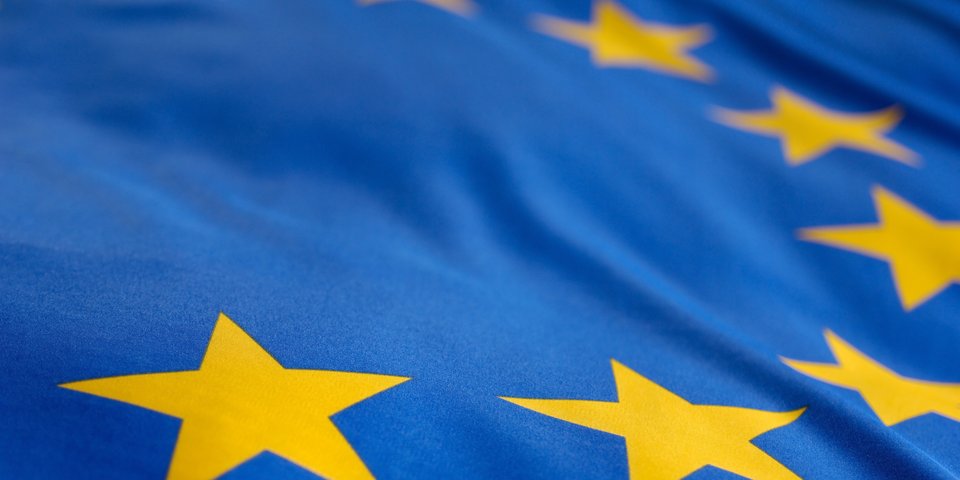 richterfoto
richterfotoDanish Council Presidency
Denmark focuses on a secure, green and competitive Europe.
HS – 06/2025
On 1 July, Denmark will assume the presidency
of the Council of the European Union (EU) for six months. This makes Denmark
the second country in the current trio presidency, in between Poland and
Cyprus. Their joint 18-month programme is focused on advancing security,
competitiveness and democracy. In this context, Denmark is placing particular
emphasis on two priorities: on the one hand, making Europe more secure – both
in terms of defence and the economy – and on the other, ensuring that Europe
becomes more competitive and green.
A competitive Europe
To strengthen the EU's long-term
competitiveness, Denmark wants to reduce burdens for businesses, citizens and
public authorities. This is why the Danish presidency will give high priority
to the European Commission’s simplification proposals. At the same time,
Denmark will promote competitive labour markets: labour mobility, decent
working conditions, upskilling and reskilling as well as healthy and safe work
environments are seen as key to ensuring access to skilled labour and improving
productivity across the EU. Denmark also wants to improve opportunities for
recruiting international workers in professions experiencing labour shortages, for
example through an EU talent pool.
Fair labour mobility
According to the Danish programme, freedom of
movement for workers is a cornerstone of EU cooperation. Digitalisation can
help simplify the coordination of social security within the EU, improve
enforcement and oversight of existing rules, and support free and fair labour
mobility. In this context, the pilot project for the European Social Security
Pass (ESSPASS) is to be followed up, and further solutions related to free and
fair mobility will be explored. This also applies to posted workers. The Danish
presidency wants to advance negotiations on a voluntary digital posting
declaration (e-declaration), aiming to significantly reduce administrative
burdens for European companies while safeguarding workers’ rights.
Healthy and safe workplaces
Too many Europeans fall ill due to exposure to
hazardous substances at work. Therefore, the Danish presidency intends to
advance health and safety measures, including the sixth revision of the
Directive on carcinogens, mutagens and reprotoxic substances. Additionally,
Denmark seeks to ensure appropriate framework conditions for internships across
the EU and prevent poor pay and working conditions. A key focus will be the
Council Recommendation on a reinforced Quality Framework for Traineeships.
Equal treatment and anti-discrimination
In the context of updating the European
Strategy for the Rights of Persons with Disabilities, the Danish presidency
aims to adopt Council conclusions. These would set priorities for a renewed
strategy, with a particular focus on how Member States can best ensure
independent living. Furthermore, attention will be given to the Horizontal Equal
Treatment Directive, which the European Commission has considered withdrawing
due to a lack of consensus in the Council. Denmark wants to work toward a
possible agreement or, if the proposal is withdrawn, initiate political
discussions on how the EU can best strengthen efforts in this area.
Health
In the area of health, the Danish presidency
aims to conclude negotiations with the European Parliament on the
pharmaceutical package. Denmark will also address the Commission’s proposal on
critical medicines, which is intended to improve supply security for essential
medicines in the EU. Another focus will be the planned EU Medical Countermeasures Strategy to enhance the resilience of healthcare systems to man-made crises and
natural disasters. Denmark also intends to highlight the EU Biotech Act and
support science-based innovations in the bioeconomy by promoting flexibility,
cutting red tape and simplifying regulations. As antimicrobial resistance poses
a major threat to citizens, a One Health approach – linking animal and human
health – will be pursued. Finally, in line with the European Care Strategy, the
Danish presidency will prioritise the future of ageing and long-term care to
ensure quality, accessibility and better working conditions.
Chemicals policy
With regard to chemicals policy, the Danish
presidency wants to initiate negotiations on the reform of the REACH
Regulation, which addresses the registration, evaluation, authorisation and
restriction of chemicals. The aim is to establish a simplified, modernised
framework that promotes the sustainable use of chemicals and protects consumers
from hazardous substances and unnecessary PFAS – the so-called “forever
chemicals”.
Digitalisation and artificial intelligence
The Danish presidency will also work to
strengthen the EU’s digital competitiveness and technological sovereignty. This
requires building skills in key digital technologies, which in turn depends on
improved framework conditions, innovation and investment in areas such as
artificial intelligence (AI), cloud technologies and data. In this context,
Denmark aims to adopt Council conclusions to enhance digital competitiveness,
building on the European Commission’s AI Strategy and European Data Strategy.
The European action plan for cybersecurity in hospitals and healthcare
providers will also be taken forward.
Internal market
Promoting competitiveness – and thus the
internal market – is a recurring theme throughout Denmark’s programme. The
presidency aims to help strengthen the internal market, foster innovation and
further develop the Savings and Investment Union to increase access to venture
capital and mobilise private investment. In addition, negotiations on the
directive to harmonise certain aspects of insolvency law will be pursued to
support deeper integration of EU capital markets.
